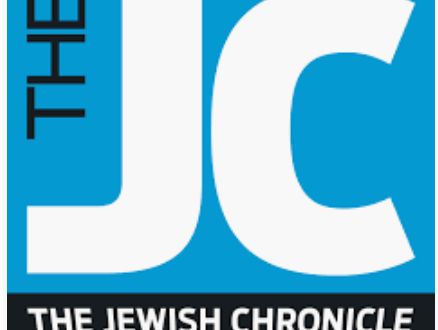Faith Matters has prepared a report analysing the reasons why members of different faith groups might be drawn to the EDL and exploring the effects the EDL is having on different communities and on interfaith dialogue.
One issue which emerges right at the beginning of the report is the slipperiness of the terms used in these debates, the difficulty of pinning down parameters. Trevor Kelway from Casuals United is quoted explaining what his own beef is:
‘ … we would march alongside Muslims and Jews who are against militant Islam…they can join the EDL as long as they accept an English way of life. It is the people who threaten with bombs and violence and threaten and bomb our troops – they don’t belong here’.
Now – although I probably wouldn’t say ‘they don’t belong here’, I’d actually go much further than Kelway, in a sense, because I think there are people and groups who are problematic even though they don’t threaten violence. The way Kelway refers to Jews in that sentence is – interesting. Why the need to make a big deal of being prepared to march alongside Jews as though, bizarrely, Jews were likely to be fans of militant Islam? I think someone’s mask just slipped a bit.
The EDL is of course made up of many different individuals whose motivations and views may vary substantially. This report cautions against simply demonising the EDL:
“It is a mistake to simply dismiss them as being unhinged and violent, for to successfully confront and defeat something you must first understand the threat you are facing; as Paulo Freire queried: ‘How can I enter into a dialogue if I always project ignorance on to others and never perceive my own?’. “
Some people who are drawn to the EDL may feel passionately about important issues such as the persecution of Christians in Muslim countries, homophobia, antisemitism, free speech or women’s rights. But it can seem, looking at the EDL’s networks, that such (valid) impulses are being exploited as a way of drawing more people into a crudely anti-Muslim nexus. The EDL has links with Christian Action Network, for example, which is involved in anti-gay activism. It might reasonably be countered that, on this issue, Christian groups rarely go anything like as far as some Muslim preachers – but it still seems to be the case that the EDL’s main principle, when deciding who to ally with, is opposition to Islam rather than a more general concern about human rights which happens to clash with (strands of) Islam.
Each faith group’s relations with Islam are analysed in turn. The report asserts that figures from the EDL invoke Christianity to imply that being Muslim and being British are incompatible, and that Crusader iconography is used to reinforce this idea of a transhistorical incompatibility between the faiths, a ‘clash of civilizations’.
The report identifies a small but very vocal Jewish division within, or aligned with, the EDL. Readers will remember that Tony Greenstein tried to manufacture an exaggerated picture of mainstream Jewish involvement with the EDL by encouraging people to skew the results of an online survey organised by the Jewish Chronicle.
Tommy Robinson has expressed support for Israel as a strong democracy and a bulwark against the Muslim threat. This is another area where it is important to acknowledge that different EDL supporters will have different views, and that some may have an entirely sincere sympathy for Israel. However, as the report points out, expressing a concern about Jews is a useful softening up/recruitment strategy for far-right or populist movements, as many would cite antisemitism as a prime reason for avoiding such parties.
“Nick Lowles from Hope Not Hate has said right-wing parties’ attempts to appeal to different ethnic and cultural groups is tactical as, ‘it allows them to portray themselves as being non-racist at the same time as legitimising their vicious and sustained attacks on the UK’s Muslim communities’.”
Although the JDL is a hateful group, proscribed in the USA, it is of course the case that mainstream Jewish organisations are overwhelmingly opposed to the EDL.
The report acknowledges the potential for distrust to be fomented between Jews and Muslims, for reasons relating both to (perceived) religious teachings and the political situation in the Middle East. Here is a telling passage about the EDL’s ways of engaging with these tensions:
“In September 2009 the EDL were involved in a standoff in central London where pro-Palestinian protesters held up banners with slogans including ‘Justice for the murdered children of Gaza’, ‘Boycott Israel’ and ‘Judaism rejects the Zionist state’, while the EDL responded with chants of ‘we hate Muslims’ and ‘Muslim bombers off our streets’. These mantras show that while the EDL’s presence at the demonstration was supposedly to show support for Israel, the underlying reason for the confrontation boiled down to their hostility towards Muslims in general.”
For some in the EDL it would seem that support for Israel is superficial and opportunistic, reverse mirroring the motives of some ‘pro-Palestinian’ activists – what really motivates the latter is dislike of Israel, and what really motivates many of these EDL demonstrators is hatred of Islam.
Moving on to Sikhism, patterns of support for the EDL follow roughly similar patterns – it seems to come from a fairly small minority whereas condemnation for the EDL is by far the more mainstream position. There are historical reasons why Sikhs (like Jews) might feel hostility towards Muslims, and the EDL taps into these. A further factor has a role to play in mobilising Sikh support for the EDL – they are often mistaken for Muslims. But whereas a few are anxious to de-identify from Muslims – and supporting the EDL is certainly a good way to do this – many others would, by contrast, see an association with the EDL as something which would bring them into disrepute. Such Sikhs instead far prefer to express solidarity with Muslim victims of hate crime.
The report notes less evidence of links between Hindus and the EDL. One source of support for the EDL is Canadian Hindu Advocacy, led by Ron Banrjee and Naresh Patel.
“During a JDL demonstration, one reporter asked Banerjee how he can claim to be pro-Jewish and pro-Israel when he supports a party that praises Hitler; his response adhered to the dangerous logic of ‘my enemy’s enemy is my friend’ often demonstrated by EDL supporters from minority religious groups and members of Casuals United, who join forces with rival football firms for a common cause – ‘As long as they kill Muslims I don’t care’.”
Like Sikhs, Hindus suffer from a problem of mistaken identity – though it seems odd to turn to the EDL as the solution when they are themselves a major cause of the problem:
“Hindus have also been mistaken for Muslims and attacked, and there are reports that after an EDL rally in Dudley (17/07/2010), a Hindu temple was attacked by EDL supporters who (presumably) mistook it for a mosque. Gian Narad, the temple’s treasurer, told Socialist Worker: ‘Fifty or sixty of them broke down the fencing outside to get into the temple grounds…They threw bricks and stones at the building, smashing three windows.”
Towards the end of the report a reference is made to the ‘divide and rule’ tactics of the EDL. I think we should all co-opt those tactics for ourselves, by continuing to demonstrate that opposing the EDL is not only compatible with opposing extremism, but a vital part of such a stance and, echo the words of Khadim Hussein, president of the Bradford Council for Mosques,
“Therefore, let us work together – Muslims, Christians, Sikhs, Hindus, Jews, and Humanists – to say to EDL: we are not interested in your type of politics.”
Lucy Lips adds
This report is a little zany.
Its lead action point for the future appears to be that the “Jewish Defence Force UK” – which appears to be a Facebook page or two run by the Brazilian Wiccan, Roberta Moore – should be outlawed. The main reason appears to be that on their Facebook page, they:
posted a cartoon … abusing the Prophet of Islam, Muhammad in a graphic sexual manner
The rest of the report contains objections to characterising Islamism as antisemitic (and a refusal to consider the possibility that it is). The “rocks and trees” Hadith about Jew-killing is given a footnote suggesting that it may not be authentic – which is beside the point, as there’s no explanation of the fact that it is believed to be true in particular by Islamist groups.
Elsewhere, there’s a mention of a stand off between the EDL and a pro-Palestinian group. The group in question was the Al Quds day rally, run by the Khomenists of the Islamic Human Rights Commission, at which banners of genocidally antisemitic terrorist organisations were paraded. No mention of this at all.
Some Facebook pages run by a handful people that have no connection at all with any Jewish institution are certainly a matter of concern – minor concern. They’re marginal, and repeatedly opposed by Jews generally. By contrast, Islamist institutions, many of which showcase horrific antisemites and supporters of terrorism against Jews, in many cases lead Muslim communities. They hold retreats and conferences up and down the United Kingdom, and are largely unexamined and unopposed.
Most surreally, there’s a fluffy mention (on page 47) of of the Muslim Defence League’s various online incarnation. They’re mischaracterised as “Facebook pages dedicated to challenging [the EDL’s] views,”
The MDL is the absolute mirror image of the EDL. In fact, if you look at their Facebook page, it is filled with open praise for terrorists and terrorist groups, and the glorification of violence.
You’d hope that this would, at least, have been a matter of concern to the authors of the report.
The EDL consists of a bunch of thugs, yobs and semi-Nazis. They won’t protect Jews from attack: they couldn’t even if their support wasn’t entirely cynical.
But the lackadaisical approach of this report to the very real problem of anti-Jewish Islamist incitement sadly leaves me feeling that Faith Matters aren’t able to oppose the Islamist’s mirror image of the EDL.
As a footnote, here’s an interesting snippet Khadim Hussein, President of the Bradford Council for Mosques who is quoted above. When Channel 4 Dispatches was researching a disturbing documentary showing the beating and promotion of hatred to young children, here was how Khadim Hussein reacted:
As is customary in these programmes, there was the obligatory door-stopping: Ahmed and her camera crew made their way to the mosque to get a response from mosque officials, who quickly shut the door on her. A local councillor, Khadim Hussain, then appeared and unfortunately appeared to suggest that the programme-makers were endangering the children.
Khadim Hussein then changed tack and put out a statement claiming that the programme makers were complicit in the abuse of children for not bringing the matter to the Mosque sooner.


